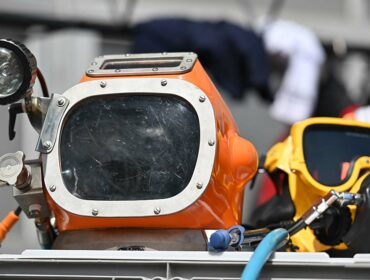The basic regulator design patented by Cousteau and Gagnan over 60 years ago still works extremely well to this day, even with the advent of balanced pistons, downstream valves, and extra low pressure ports. However, today’s dive gear manufacturers also use much better materials for moving parts and casings than regulators of the past, making the topic of servicing a grey area.
Still, you will be hard-pressed to find an industry voice that doesn’t recommend annual maintenance. In many cases, this comes down to the equipment’s warranties and a matter of precaution. To keep your dive gear under warranty, equipment manufacturers typically require that the equipment is inspected and serviced annually. However, some high-end manufacturers, such as Atomic Aquatics, only require servicing after two years or 300 dive hours.
According to Dave Farrar, owner of Gypsy dive shop in Raleigh, North Carolina, “When regulators came out in the 50s, diaphragms, valve seals, and O-rings were made from rubber, which were prone to developing memory after repeated use, keeping them from sealing properly. So, the industry adopted the practice of annual maintenance.” However, Farrar also believes that modern equipment materials last much longer than a year and do not need servicing as often.
Some dive shops and repair facilities still recommend that dive gear should be serviced yearly or after every 80 to 100 dives. However, others, such as the National Aquatic Service in Syracuse, New York, recommend that equipment be inspected and serviced after only 20 dives per year.
In his book Doing Scuba Right, dive boat skipper Fred Calhoun openly questions the need for annual servicing. “There’s nothing wrong with such extreme care, but it’s not necessary. I know of what I speak. Manufacturers will recommend annual servicing because they are prone to lawsuits,” he writes. With 52 years in the dive business, his advice should be taken with much more than a grain of salt.
Every diver wants their equipment to perform flawlessly. However, since divers treat and handle their gear differently, no one approach to servicing fits everyone. For new equipment, the warranty of the manufacturer should be considered when making a servicing decision. Ultimately, how often you use your equipment, your comfort level between service intervals, and your ability to recognize the performance level of your equipment should also be considered when choosing when to get your dive gear serviced.





